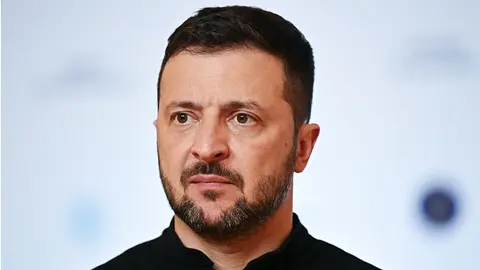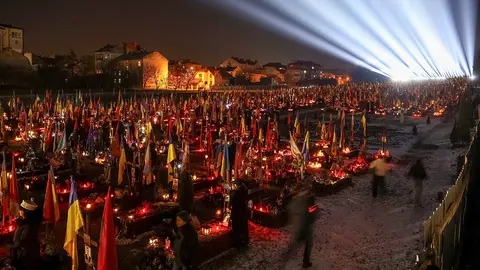Macron and Trump reveal their profound differences over Ukraine
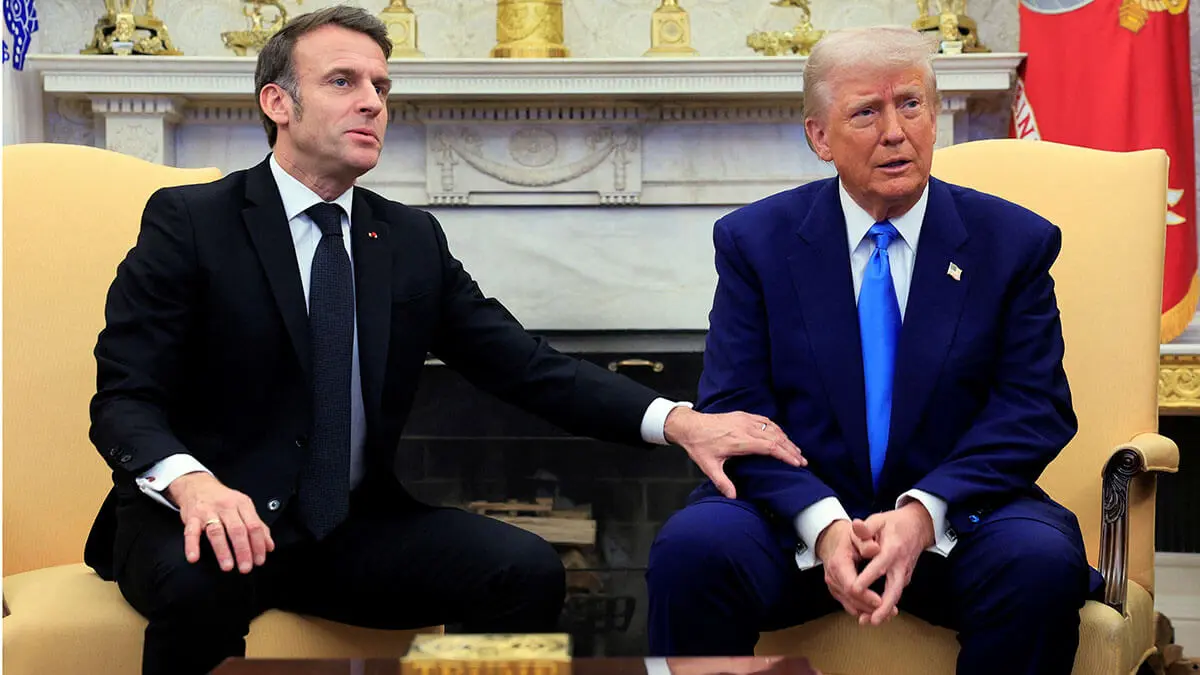
The meeting between French President Emmanuel Macron and his US counterpart Donald Trump has highlighted the growing rift between Brussels and Washington over the war in Ukraine.
Since his return to the White House, Trump has clearly distanced himself from Kiev and its European allies, breaking completely with the foreign policy of the previous US administration. In a radical turn, he has backed Russia's arguments, even going so far as to accuse Ukraine of having started the war and labelling President Volodimir Zelensky a ‘dictator’.
In this context, and with the aim of repairing relations between the United States and the European Union, Macron travelled to Washington, where he reaffirmed his support for Ukraine's sovereignty and European backing for Kiev.
The French leader emphasised that Europe wanted peace, but that this peace ‘should not mean the surrender of Ukraine’. ‘It must not mean a ceasefire without guarantees. This peace must respect Ukrainian sovereignty,’ added the French president during his visit to the United States, which coincided with the third anniversary of the Russian invasion of Ukraine.
For his part, Trump avoided referring to any security guarantees during his speech at the joint press conference on Monday. Instead, he presented himself as a mediator between the two sides to reach an agreement, emphasising in this regard that he was in contact with Russian President Vladimir Putin.
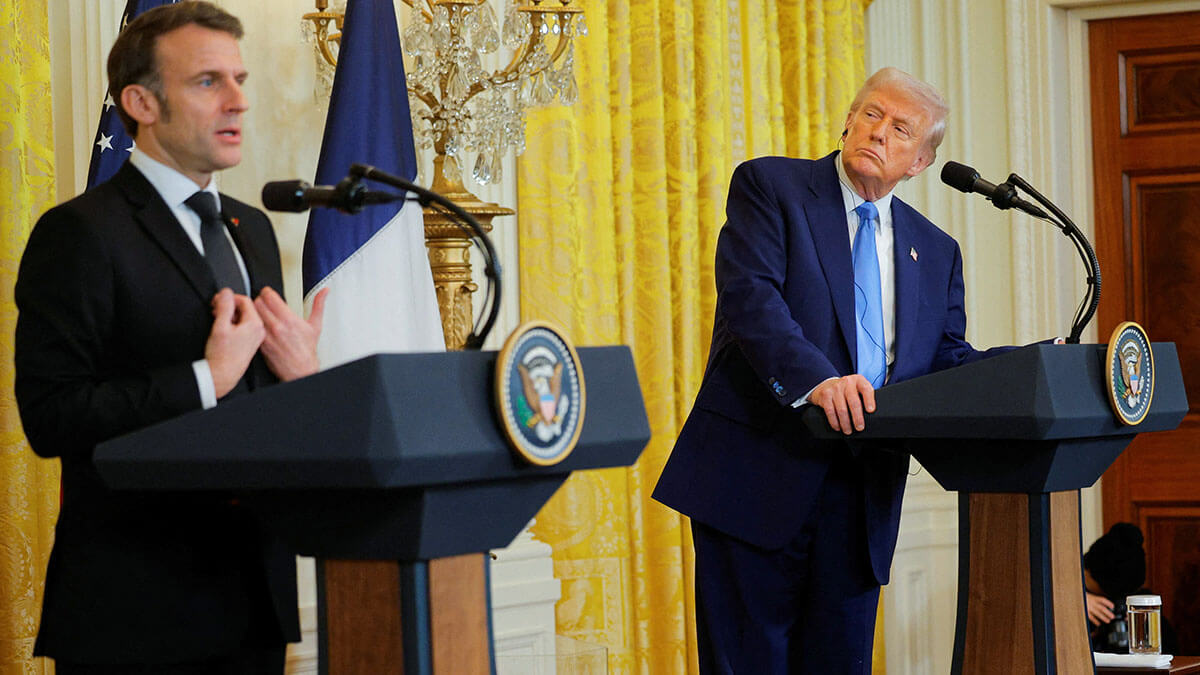
At one point during the joint press conference, Macron attempted to correct Trump on European support for Ukraine, interrupting the US president while he was speaking to suggest that he was misrepresenting the facts.
Trump said that Europe was ‘lending Ukraine the money’ but that they would get it back, using this argument to defend a new deal to secure Ukraine's mineral revenues. It was then that Macron intervened, pointing out that Europe was paying 60% of the total effort. ‘It was like in the United States: loans, guarantees, grants,’ he explained.
Macron also wanted to emphasise the points they had in common. Reaffirming a position he has held for months, he recognised that Europeans must take greater responsibility for their own security, a principle on which, at least in theory, he agrees with Trump.
"France is America's oldest ally. Our cherished partnership has been a force for freedom, prosperity, and peace from the very beginning." –President Donald J. Trump 🇺🇸🇫🇷 @EmmanuelMacron pic.twitter.com/3UZwFrShEu
— President Donald J. Trump (@POTUS) February 25, 2025
However, the differences between the two were still evident, and there was no sign that Trump had significantly changed his stance on who is responsible for the war in Ukraine or whether Europe has done enough.
In fact, this meeting coincided with a US-led resolution that does not consider Russia the aggressor in the war. This resolution was approved in the UN Security Council with the support of Moscow and without the backing of the United States' European allies.
Likewise, Trump was receptive to the proposal to send a European peacekeeping force to Ukraine, a plan he will address at the end of this week when he receives the British Prime Minister, Keir Starmer. He even mentioned that he had already discussed the idea with Putin, who, according to Trump, would also be open to the plan.
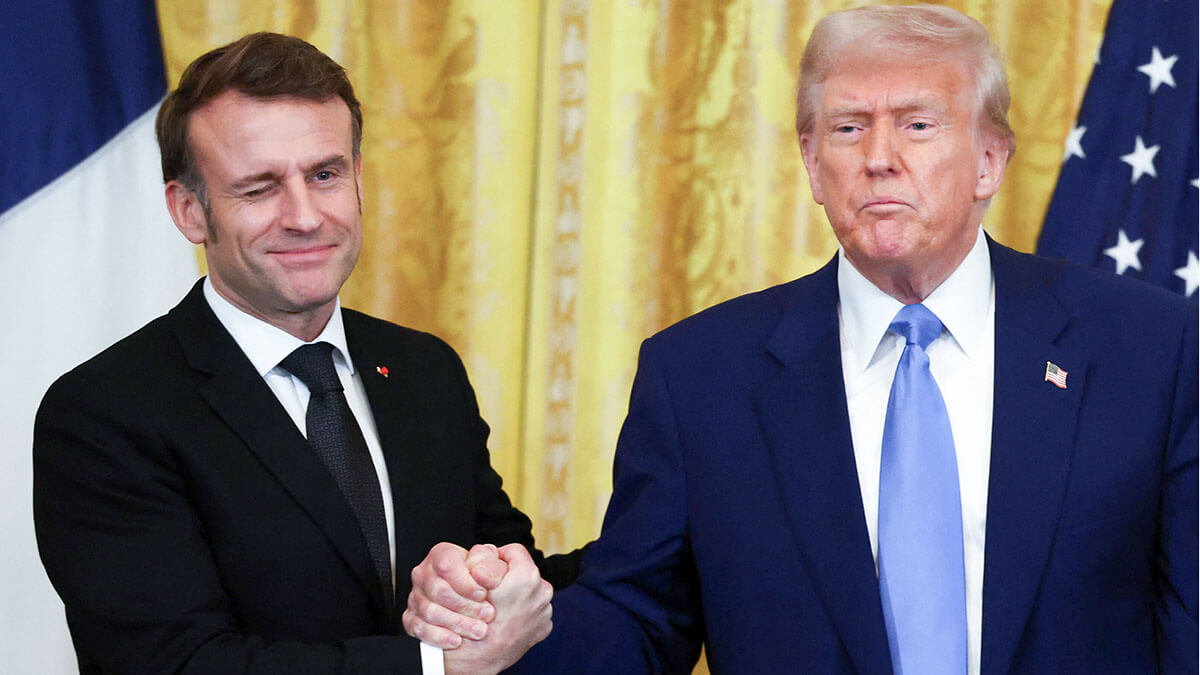
On the other hand, Trump also emphasised that he was willing to meet Zelensky soon to finalise an agreement that would allow the United States access to Ukraine's mineral resources.
The US president is taking a particular interest in Ukraine's natural resources. The country is estimated to have the largest reserves of titanium in Europe, a key material for the aerospace, medical and automotive industries. It also has the largest European reserves of lithium, essential for the manufacture of batteries, ceramics and glass.
For this reason, Trump has repeatedly proposed that Ukraine provide the United States with 500 billion dollars worth of rare earth metals in payment for Washington's military aid during the war years. However, Zelensky has rejected this plan and is trying to reach a better agreement.

